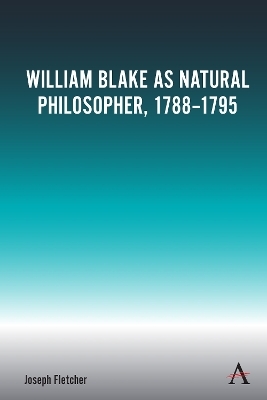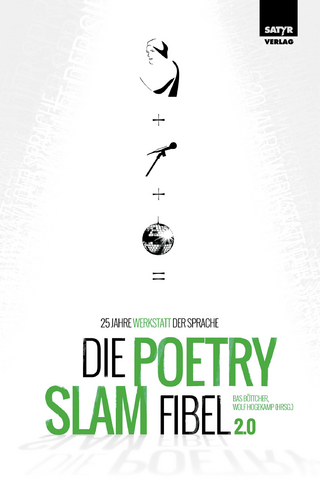
William Blake as Natural Philosopher, 1788-1795
Seiten
2021
Anthem Press (Verlag)
978-1-78527-951-5 (ISBN)
Anthem Press (Verlag)
978-1-78527-951-5 (ISBN)
William Blake as Natural Philosopher, 1788-1795 takes seriously William Blake’s wish to be read as a natural philosopher, particularly in his early illuminated works, and reveals the way that poetry and visual art were for Blake an imaginative way of philosophizing.
William Blake as Natural Philosopher, 1788-1795 takes seriously William Blake’s wish to be read as a natural philosopher, particularly in his early illuminated works, and reveals the way that poetry and visual art were for Blake an imaginative way of philosophizing. Blake’s poetry and designs reveal a consistent preoccupation with eighteenth-century natural philosophical debates concerning the properties of the physical world, the nature of the soul, and God’s relationship to the material universe. This book traces the history of these debates and examines images and ideas in Blake’s illuminated books that mark the development of the monist pantheism, which contends that every material thing is in its essence God, to the idealism of his later period, which casts the natural world as degenerate and illusory. The book argues that Blake’s philosophical thought was not as monolithic as has been previously characterized, and that pantheism is important to understanding his early works because it entails an ethics that respects the interconnected divinity of all material objects – not just humans – which in turn spurns hierarchical power structures.
William Blake as Natural Philosopher, 1788-1795 takes seriously William Blake’s wish to be read as a natural philosopher, particularly in his early illuminated works, and reveals the way that poetry and visual art were for Blake an imaginative way of philosophizing. Blake’s poetry and designs reveal a consistent preoccupation with eighteenth-century natural philosophical debates concerning the properties of the physical world, the nature of the soul, and God’s relationship to the material universe. This book traces the history of these debates and examines images and ideas in Blake’s illuminated books that mark the development of the monist pantheism, which contends that every material thing is in its essence God, to the idealism of his later period, which casts the natural world as degenerate and illusory. The book argues that Blake’s philosophical thought was not as monolithic as has been previously characterized, and that pantheism is important to understanding his early works because it entails an ethics that respects the interconnected divinity of all material objects – not just humans – which in turn spurns hierarchical power structures.
Joseph Fletcher is Assistant Teaching Professor in the Department of English and Comparative Literature at the University of North Carolina at Chapel Hill, where he also serves as Managing Editor of the William Blake Archive.
List of Figures; Acknowledgments; Introduction: “We Who Are Philosophers”: Blake’s Early Metaphysics; Chapter One A Sense of the Infinite: Leibniz, Hume and Panpsychism in the Early Tractates; Chapter Two Soul Matter: The Marriage of Heaven and Hell and Monist Pantheism; Chapter Three Breathing Dust: Erasmus Darwin and Blake’s Regenerative Materialism; Chapter Four “Horrible Forms of Deformity”: The Urizen Cycle and Vitalist Materialism; Coda: The Ghost of Pantheism; Bibliography; Index.
| Erscheinungsdatum | 20.09.2021 |
|---|---|
| Verlagsort | London |
| Sprache | englisch |
| Maße | 153 x 229 mm |
| Gewicht | 454 g |
| Themenwelt | Literatur ► Lyrik / Dramatik ► Lyrik / Gedichte |
| ISBN-10 | 1-78527-951-3 / 1785279513 |
| ISBN-13 | 978-1-78527-951-5 / 9781785279515 |
| Zustand | Neuware |
| Informationen gemäß Produktsicherheitsverordnung (GPSR) | |
| Haben Sie eine Frage zum Produkt? |
Mehr entdecken
aus dem Bereich
aus dem Bereich
Deutsche Gedichte aus zwölf Jahrhunderten
Buch | Hardcover (2023)
C.H.Beck (Verlag)
CHF 41,90
25 Jahre Werkstatt der Sprache
Buch | Softcover (2020)
SATYR Verlag
CHF 27,90


